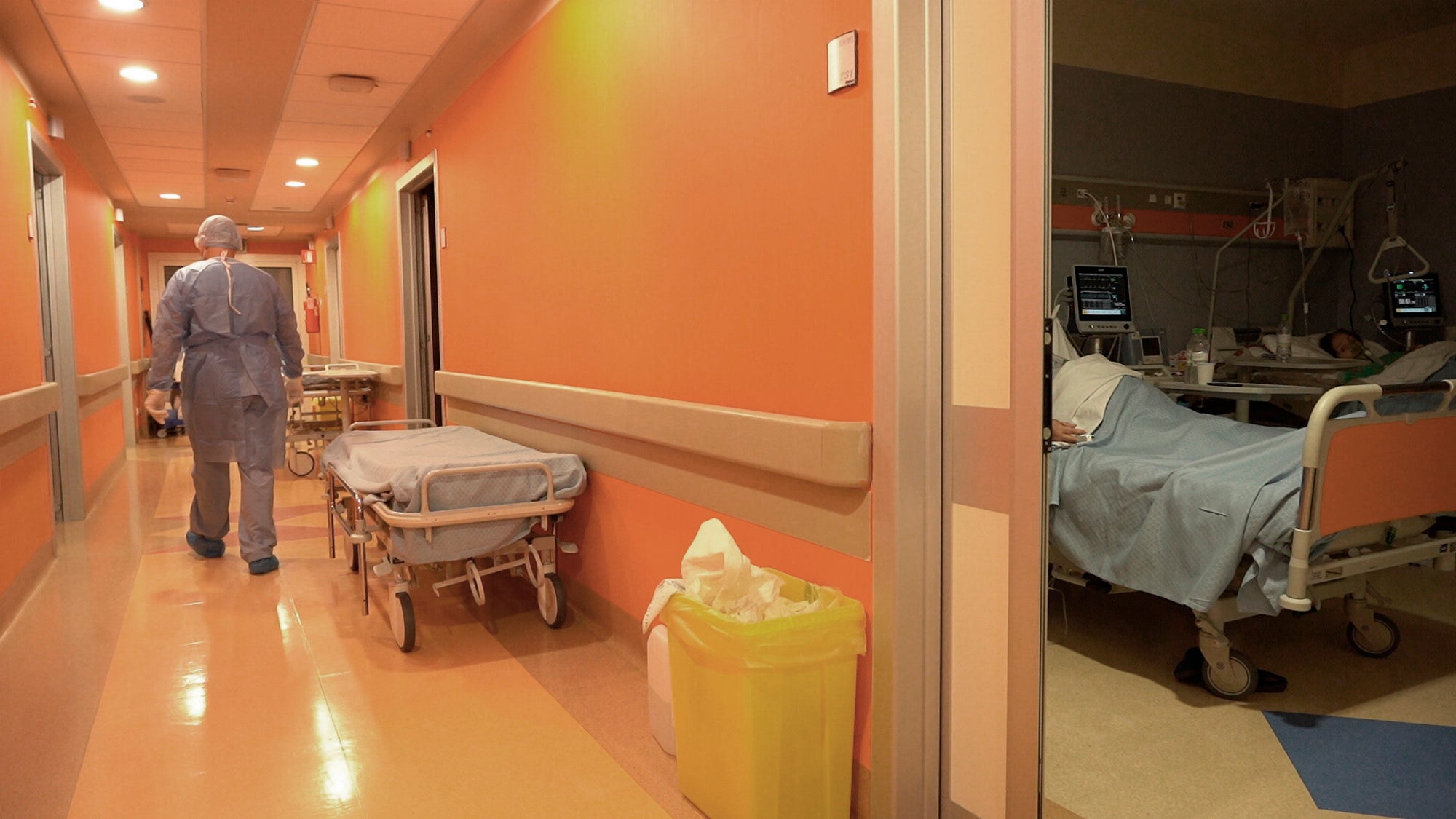New Year comes to COVID ward, with hope for end to nightmare
While the world said goodbye — or good riddance — to a pandemic-ridden 2020, nurses and doctors fighting the virus on the front lines soldiered on even as the clock passed midnight

Your support helps us to tell the story
From reproductive rights to climate change to Big Tech, The Independent is on the ground when the story is developing. Whether it's investigating the financials of Elon Musk's pro-Trump PAC or producing our latest documentary, 'The A Word', which shines a light on the American women fighting for reproductive rights, we know how important it is to parse out the facts from the messaging.
At such a critical moment in US history, we need reporters on the ground. Your donation allows us to keep sending journalists to speak to both sides of the story.
The Independent is trusted by Americans across the entire political spectrum. And unlike many other quality news outlets, we choose not to lock Americans out of our reporting and analysis with paywalls. We believe quality journalism should be available to everyone, paid for by those who can afford it.
Your support makes all the difference.While the world said goodbye — or good riddance — to 2020, a year in which the pandemic brought hardship and pain to billions, some of those who have been fighting the virus on the front lines soldiered on even as the clock passed midnight.
At the Casalpalocco Covid 3 Hospital on the outskirts of Rome doctors and nurses barely seemed to register the new year as they tended to 100 patients struggling with serious to critical illness as a result of coronavirus infections.
In one intensive care ward, all but one of a dozen beds were occupied. Medical staff calmly tended to patients lying in dimly lit rooms, dispensed medication, checked respiratory machines and filled in medical records.
“This particular one (New Year’s Eve) is a surreal night, as was Christmas, as will be the Epiphany, as was the past Easter and all the other holidays,” said Dr. Paolo Petrassi, the night shift coordinator. “They are, let’s say, holidays detached from what was the real world once, as we have known it forever.”
The 53-year-old recounted the experience now familiar to so many in the medical profession worldwide who have had to treat COVID patients: having to constantly monitor patients and manage their condition, with each having their own set of complicated problems.
Over 83 million infections with the coronavirus have been confirmed worldwide, and over 1.8 million deaths. Along with the elderly, medical staff have been particularly hard hit, struggling to save patients even as their own colleagues have fallen ill with a disease almost nobody could have imagined a year ago.
“It was all unexpected," Petrassi told The Associated Press.
Italy was the early epicenter of the pandemic in Europe in the spring. Images of Italian nurses and doctors, exhausted as they briefly removed their protective gear, became a grim portent of what would happen to their colleagues in Spain, France, the United States and elsewhere, months later.
Last month, after a summer in which Italy seemed to have beaten back the scourge, it again became the country with the highest death toll in Europe. And once more, the grim reality was reflected in the eyes of Italy's medical staff.
“Now we are almost reaching the 12 months of this pandemic and unfortunately we still don’t have the possibility to say it’s over," said Petrassi. "We only have the hope of the mass vaccination that, we hope, will contribute to control this ominous phenomenon.”
European regulators approved the first vaccine shortly before Christmas. Countries across the European Union began administering the shots on Dec. 27, but it will be a long time before a sizeable number of the bloc's 450 million inhabitants are immunized.
Experts say at least 60-70% of the population need to be vaccinated to prevent the virus from getting a foothold.
Petrassi hopes the nightmare of COVID will end soon.
“We all live in uncertainty, but at the same time we hope, and we are all doing our best,” he said. “We are using all of our professional and physical resources, our knowledge, our conscience, giving up time with our families, ours and our beloved ones’ free time.”
“We are investing all this so that all these efforts will not be in vain.”
___
Follow AP’s pandemic coverage at http://apnews.com/VirusOutbreak and https://apnews.com/UnderstandingtheOutbreak